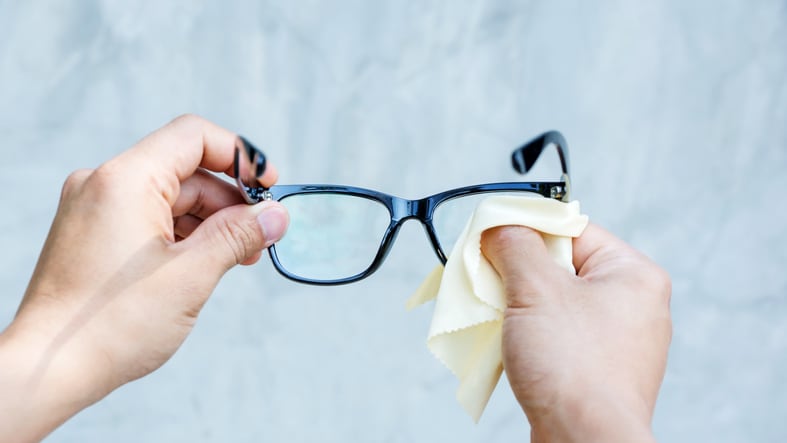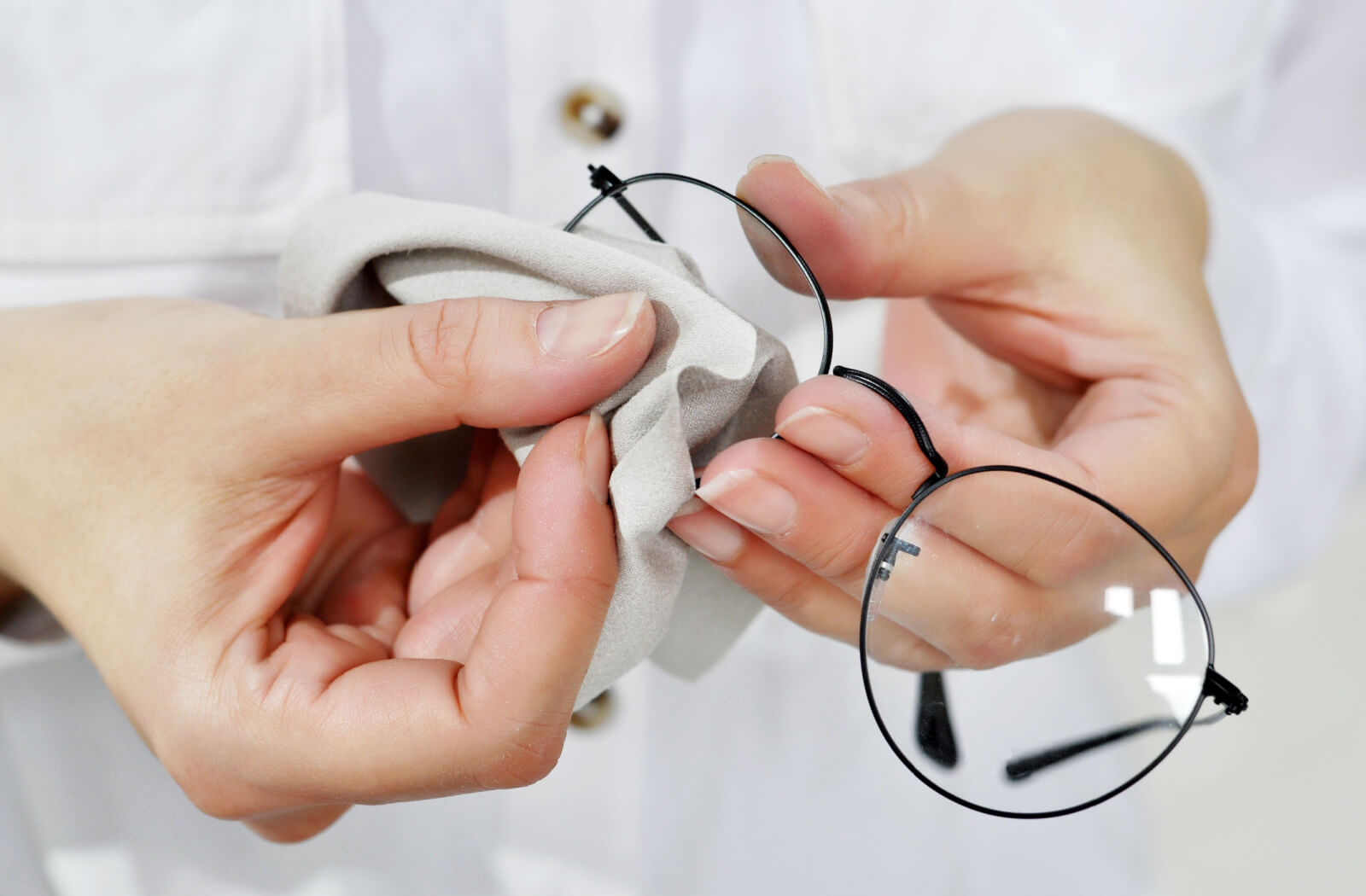Introduction
Hey there! Are you tired of constantly squinting through smudged lenses? Do your glasses seem to get dirty the moment you clean them? Well, fear not! In this guide, we’ll dive into the art of cleaning glasses like a pro. Whether you’re a seasoned glasses wearer or new to the spectacle scene, mastering the art of cleaning can make a world of difference in your vision and comfort.
Why Cleaning Glasses Matters
Imagine looking through a foggy window – frustrating, right? That’s how it feels when your glasses are dirty. Cleaning your glasses isn’t just about aesthetics; it’s about clarity. Regular cleaning not only improves your vision but also prolongs the lifespan of your eyewear. Say goodbye to smudges, streaks, and distorted vision!
Enhanced Vision
Clean glasses mean clear vision. Removing dirt, oil, and debris from your lenses ensures that you see the world in high definition. Whether you’re driving, reading, or scrolling through your phone, crystal-clear vision is essential for everyday tasks.
Comfort and Convenience
Dirty glasses can cause discomfort, irritation, and headaches. By keeping your lenses clean, you’ll enjoy greater comfort throughout the day. Plus, you won’t have to constantly adjust or remove your glasses due to smudges or smears.
Longevity of Eyewear
Proper maintenance extends the life of your glasses. Regular cleaning prevents buildup and reduces the risk of scratches and damage. By investing a few minutes in cleaning each day, you’ll save money on repairs and replacements in the long run.
How to Clean Glasses Properly
Now that we understand why cleaning glasses is crucial, let’s dive into the nitty-gritty of how to do it right. Follow these simple steps for sparkling clean lenses:
Step 1: Rinse Thoroughly
Start by rinsing your glasses under lukewarm water. This helps remove surface particles and debris without scratching the lenses. Avoid hot water, as it can damage lens coatings.
Step 2: Apply a Drop of Dish Soap
Apply a small drop of mild dish soap to each lens. Gently rub the soap around the lenses, frame, and nose pads with your fingertips. Avoid using harsh chemicals or alcohol-based cleaners, as they can strip away lens coatings.
Step 3: Rinse Again
Rinse your glasses thoroughly under running water to remove the soap residue. Be sure to rinse both sides of the lenses, as well as the frame and nose pads. Avoid using hot water, as it can cause thermal shock to the lenses.
Step 4: Dry Carefully
Gently shake off any excess water from your https://www.estrull.com/. Then, use a clean, lint-free cloth to dry them. Avoid using paper towels or rough fabrics, as they can scratch the lenses. Instead, opt for a microfiber cloth specially designed for cleaning glasses.
Choosing the Right Cleaning Products
Not all cleaning products are created equal when it comes to glasses. Choosing the right ones can make a world of difference in maintaining your eyewear’s clarity and longevity. Here’s what to look for:
Mild Dish Soap
Mild dish soap is gentle yet effective for cleaning glasses. Look for a fragrance-free formula that won’t leave behind residue or streaks. Avoid using dish soaps with added moisturizers or antibacterial agents, as they can leave a film on your lenses.
Microfiber Cloth
A high-quality microfiber cloth is a must-have for cleaning glasses. These ultra-soft fabrics are designed to lift away dirt and oil without scratching the lenses. Avoid using paper towels, tissues, or clothing, as they can leave lint and debris behind.
Lens Cleaning Solution
If you prefer a ready-made solution, opt for a lens cleaning spray specifically formulated for glasses. Look for alcohol-free formulas that won’t damage lens coatings. Spray the solution onto your lenses and wipe them clean with a microfiber cloth for quick touch-ups on the go.
Common Mistakes to Avoid
While cleaning glasses may seem straightforward, there are some common mistakes to avoid to ensure optimal results. Here are a few pitfalls to steer clear of:
Using Abrasive Materials
Avoid using abrasive materials like paper towels, tissues, or rough fabrics to clean your glasses. These materials can scratch the lenses and damage lens coatings, compromising your vision and comfort.
Skipping Rinse Steps
Rinsing is a crucial step in the cleaning process that should not be overlooked. Skipping this step can leave behind soap residue, causing streaks and smudges on your lenses. Always rinse your glasses thoroughly under running water before drying them.
Using Harsh Chemicals
Avoid using harsh chemicals or alcohol-based cleaners on your glasses. These substances can strip away lens coatings, causing permanent damage. Stick to mild dish soap and water for safe and effective cleaning.
Dealing with Stubborn Stains
Stubborn stains on your glasses can be frustrating to deal with, but fear not – there are ways to tackle them effectively. Here are some tips for removing stubborn stains from your lenses:
Toothpaste
Apply a small dab of non-abrasive toothpaste to the stained areas of your lenses. Gently rub the toothpaste around the stains using your fingertips. Rinse your glasses thoroughly under running water and dry them with a microfiber cloth.
Vinegar Solution
Mix equal parts white vinegar and water in a small bowl. Dip a clean cloth into the vinegar solution and gently wipe the stained areas of your lenses. Rinse your glasses thoroughly under running water and dry them with a microfiber cloth.
Cleaning Different Types of Lenses
Not all lenses are created equal, and different materials require different cleaning techniques. Whether you have plastic, glass, or polycarbonate lenses, here are some tips for cleaning each type effectively:
Plastic Lenses
Plastic lenses are lightweight and durable but can scratch easily if not cleaned properly. Use a mild dish soap and water to clean plastic lenses, and avoid using abrasive materials or harsh chemicals.
Glass Lenses
Glass lenses are more scratch-resistant than plastic lenses but can still be damaged if not cleaned carefully. Use a microfiber cloth and lens cleaning solution to clean glass lenses, and avoid using abrasive materials or rough fabrics.


